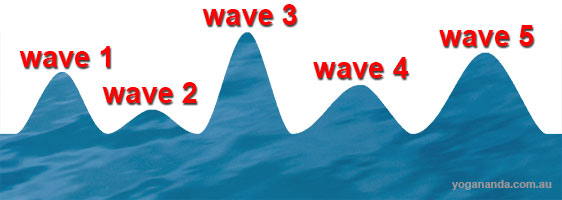The Bhagavad Gita II:16
Excerpts from God Talks with Arjuna: The Bhagavad Gita
by Paramahansa Yogananda
The Impermanent Is Not Real
Of the unreal, there is no existence. Of the real, there is no nonexistence. The final truth of both of these is known by men of wisdom.
—The Bhagavad Gita II:16
Alternative translation:
The impermanent has no reality; reality lies in the eternal. Those who have seen the boundary between these two have attained the end of all knowledge.
The senses say that the flower that was never born has shed no fragrance; things that were never real have ever been nonexistent. But the garden rose, by its fragrance, and the stars, by their twinkle in the sky proclaim their reality. The seers of truth, however, know them all to be equally unreal; for the rose will fade away, and many a distant star whose glimmer dots the heavens has long since ceased to be. Could something become nothing?
Possessors of wisdom perceive as real only That which changes not—the Essence that became the star and the idea of the flower in the poet's mind. The wise alone know the mystery of the real and the unreal.

The ocean can exist without the waves, but the waves cannot manifest without the ocean. The ocean is the real substance; the waves are only temporary changes on the ocean, and therefore "unreal" (in themselves they have no independent existence). The ocean, in essence, does not change whether it is calm or restless with waves; but the waves change their forms—they come and they go. Their essence is change, and therefore unreality.
The eternal substance is said to be divided into two—the Sat or Changeless Spirit, and the Asat, the unreal or the ever-changing Nature, the Cosmic Mother of twenty-four attributes. [see below: 24 Veils of Maya]
There are two ways of perceiving Substance:
as the changeless Spirit, and
as the ever-changing creation.
...Those, therefore, who do not look into matter through the senses but who look through matter into Spirit, really know the mystery of the unreal and the Real. The Real, unchanged through eternity, is existent; the unreal, changeable, is only relatively existent. Substance exists; phenomena, which cannot exist without the existence of Substance, has no separate existence.
The ordinary individual considers matter as real (because manifest); he ignores the Spirit as unreal (because hidden). This delusion enshrouds him in ignorance and suffering. The wise man tears aside the appearance of delusive creation and, perceiving the Everlasting Reality, is permanently happy.
Sages behold the way in which the waves of unreality crop up from Reality and cover Its oneness—just as many waves hide the in-severable unity of the ocean. By this view, the wise ones become fixed in the unchangeable Spirit and ignore the changes of the so-called matter-of-fact world. Knowledge of Reality does not make one vague or visionary, shirking his duties! The knower of Reality may be said to be a sane person in the midst of lunacy! (God Talks with Arjuna p.206)
![]()